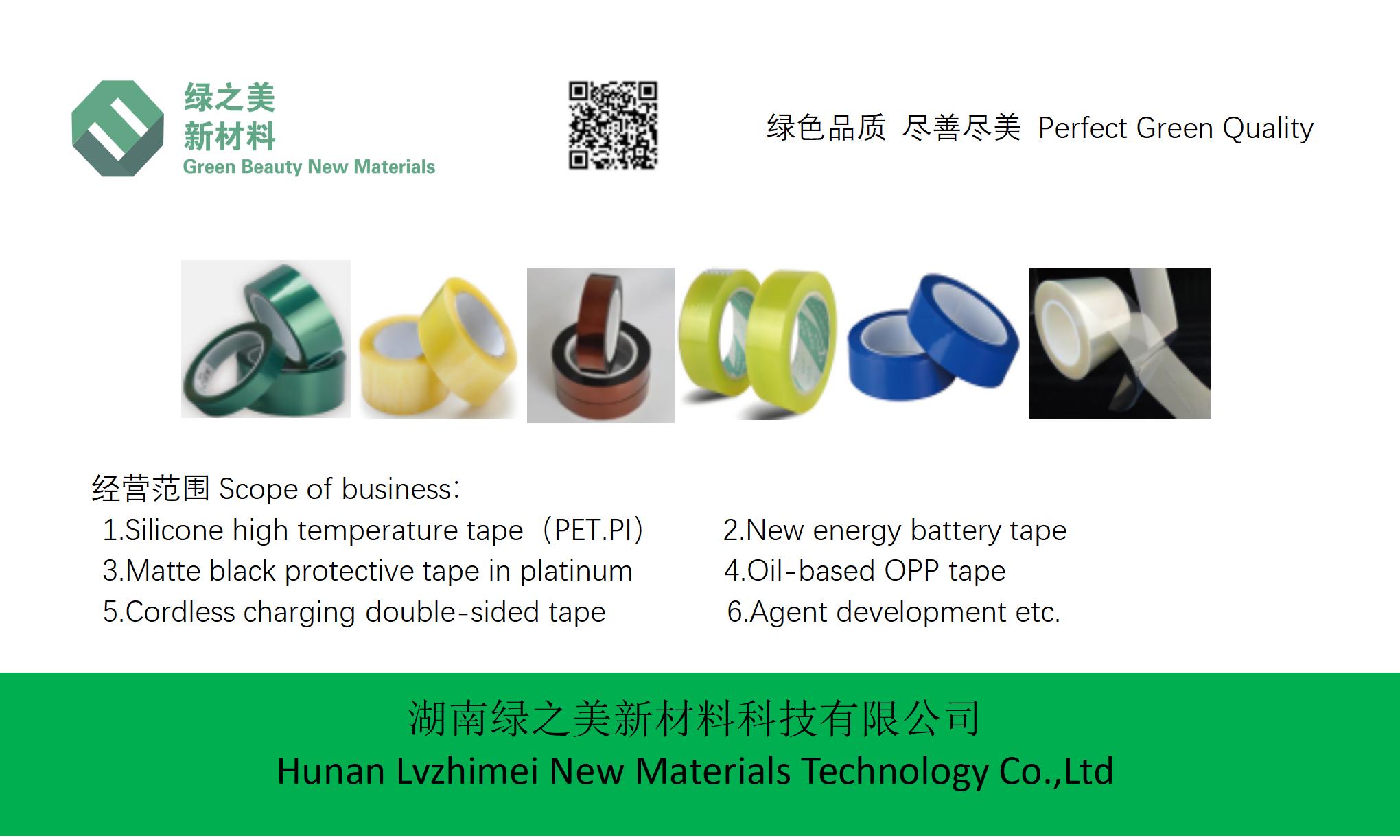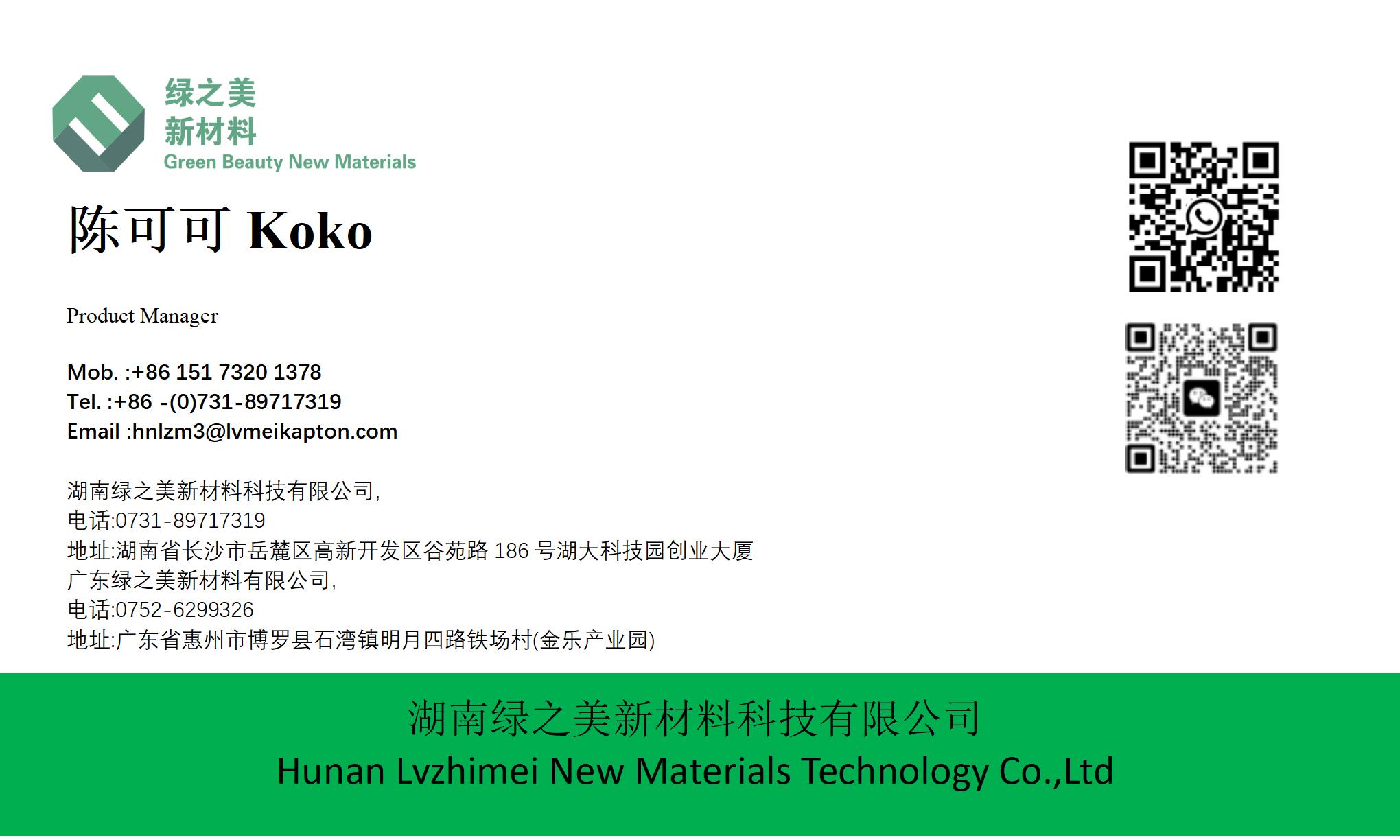hnlzm@lvmeikapton.com
+86 13787123465


Hunan Lvzhimei New Material Technology Co., Ltd.


NameDescriptionContent
What Are the Key Differences Between Adhesive PET and PI Material Tapes? |https://www.lvmeikapton.com/
Source:
|
Author:Koko Chan
|
Published time: 2025-05-16
|
75 Views
|
Share:
High-temperature tapes play a crucial role in various industries, providing thermal resistance, electrical insulation, and mechanical protection in demanding environments. Among these, adhesive PET (Polyethylene Terephthalate) and PI (Polyimide) tapes stand out for their distinct properties. While PET tapes offer cost-effective solutions for moderate heat applications, PI tapes excel in extreme conditions, making them indispensable in aerospace, electronics, and advanced manufacturing. This article delves into the key differences between these materials, exploring their composition, performance, applications, and selection criteria.
What Are the Key Differences Between Adhesive PET and PI Material Tapes?
IntroductionHigh-temperature tapes play a crucial role in various industries, providing thermal resistance, electrical insulation, and mechanical protection in demanding environments. Among these, adhesive PET (Polyethylene Terephthalate) and PI (Polyimide) tapes stand out for their distinct properties. While PET tapes offer cost-effective solutions for moderate heat applications, PI tapes excel in extreme conditions, making them indispensable in aerospace, electronics, and advanced manufacturing. This article delves into the key differences between these materials, exploring their composition, performance, applications, and selection criteria.
1. Material Composition and Properties
PET TapePET, also known as Mylar, is a thermoplastic polymer derived from terephthalic acid and ethylene glycol. PET tapes are typically constructed with PET film as the base material, coated with silicone or acrylic adhesive. Their key properties include:
●
Temperature Range: Up to 150°C (short-term exposure) and 120°C (continuous use).
●
Adhesion: Moderate adhesive strength, suitable for general-purpose applications.
●
Cost: Economical due to widespread production and lower raw material costs.
●
Flexibility: Good flexibility but may degrade under prolonged heat or stress.
PI TapePI, a thermosetting polymer, is synthesized through the reaction of diamines and dianhydrides. PI tapes feature a PI film substrate with silicone adhesive, offering exceptional performance:
●
Temperature Range: Up to 300°C (short-term) and 260°C (continuous), making them ideal for high-temperature processes.
●
Adhesion: Superior adhesive strength, retaining stability even in thermal cycling.
●
Cost: Higher than PET due to complex manufacturing and superior performance.
●
Flexibility: Rigid but maintains dimensional stability under extreme conditions.
Table 1: Key Property Comparison
Property | PET Tape | PI Tape |
Base Material | PET Film | Polyimide Film |
Temperature Range | 150°C (short-term) | 300°C (short-term) |
Adhesive Strength | Moderate | High |
Flexibility | Good | Rigid |
Dielectric Strength | 20-30 kV/mm | 40-50 kV/mm |
Cost | Low | High |
2. Thermal Performance and Durability
PET Tape:
●
Strengths: Suitable for applications requiring temporary heat resistance, such as packaging,喷漆遮蔽, or general industrial masking. PET’s thermal stability allows it to withstand temperatures encountered in processes like oven curing (up to 150°C).
●
Limitations: Prolonged exposure above 150°C can cause degradation, yellowing, or adhesive residue. Not recommended for long-term use in high-temperature environments.
PI Tape:
●
Strengths: Exceptional thermal endurance, enabling use in soldering,波峰焊, or engine insulation. PI’s inherent stability ensures no shrinkage, cracking, or adhesive migration at 260°C.
●
Limitations: Lower flexibility compared to PET, requiring careful application in tight spaces.
3. Electrical Insulation and Chemical Resistance
PET Tape:
●
Insulation: Effective for low-voltage applications (up to 600V), suitable for wire wrapping or basic electrical protection.
●
Chemical Resistance: Resistant to most solvents but vulnerable to strong acids and alkalis.
PI Tape:
●
Insulation: Ideal for high-voltage environments, with dielectric strengths surpassing 40 kV/mm.常用于印刷电路板(PCB)的镀金保护, aerospace wiring harnesses, and transformer insulation.
●
Chemical Resistance: Exceptional resistance to solvents, acids, and bases, maintaining stability in corrosive environments.
4. Applications and Industry Use Cases
PET Tape Applications:
1.
Packaging and Labeling: Temporary protection during transportation or storage.
2.
Printed Circuit Board (PCB) Masking: Short-term protection during soldering (≤150°C).
3.
General Industrial Uses:喷漆遮蔽, gasket protection, and low-temperature electrical insulation.
PI Tape Applications:
1.
Electronics Manufacturing: High-temperature solder resist for lead-free processes (260°C).
2.
Aerospace and Automotive: Engine compartment insulation and wire harness protection.
3.
Medical Devices: Sterilization resistance in autoclaves and高温环境下的组件固定.
5. Performance Testing and Quality Considerations
Temperature Resistance Testing:
●
PET tapes may exhibit adhesive residue or shrinkage above 150°C, while PI tapes remain intact up to 300°C (Table 2).
Table 2: Thermal Testing Results
Test Condition | PET Tape Response | PI Tape Response |
200°C for 1 Hour | Shrinkage + Residue | Stable |
260°C for 30 Minutes | Melting + Adhesive Fail | Minimal Color Change |
Adhesive Strength Testing:
●
PI tapes maintain >80% adhesion after 1000 thermal cycles (25°C to 260°C), while PET tapes show significant decline after 500 cycles.
6. Selection Guidelines
When choosing between PET and PI tapes, consider:
1.
Temperature Requirements:
○
≤150°C: PET (cost-effective).
2.
Electrical Needs:
○
Low-voltage: PET.
○
High-voltage or aerospace applications: PI.
3.
Cost vs. Performance:
○
Budget constraints with moderate heat: PET.
○
Critical applications (e.g., electronics, aerospace): Invest in PI.
4.
Flexibility:
○
Complex shapes: PET’s flexibility offers easier application.
○
Flat surfaces or rigid environments: PI’s stability outweighs rigidity.
Conclusion
PET and PI tapes offer distinct advantages based on their material properties and performance envelopes. PET excels in cost-effective, moderate-temperature applications, while PI’s unparalleled thermal and electrical resilience makes it indispensable in high-tech industries. Understanding these differences empowers engineers and technicians to select the optimal tape for their specific needs, balancing cost, performance, and reliability. As technology advances, PI tapes continue to evolve, addressing emerging challenges in extreme environments, while PET remains a trusted solution for everyday industrial requirements.
References
1.
Chen, J. (2023). High-Temperature Tape Technology: Materials and Applications. CRC Press.
2.
ASTM D2307: Standard Test Method for Thermal Aging of Electrical Insulating Materials.
3.
U.S. Department of Energy Report: Aerospace Materials for Extreme Environments.
Contact UsFor technical inquiries or product recommendations, visit https://www.lvmeikapton.com.



Hunan Lvzhimei New Material Technology Co., Ltd.
Quick Links
Product Categories
© 2024 Hunan Lvzhimei New Material Technology Co., Ltd.All Rights Reserved. Designed by Erge
0731 - 89717319
hnlzm@lvmeikapton.com
+86 13787123465
Room 502, Chuangye Building, No186, Guyuan Road, High-Tech District, Changsha, Hunan, China
CONTACT



